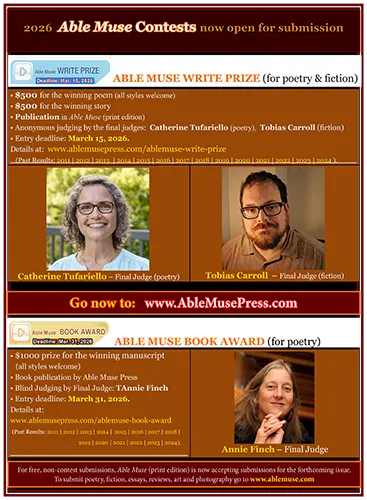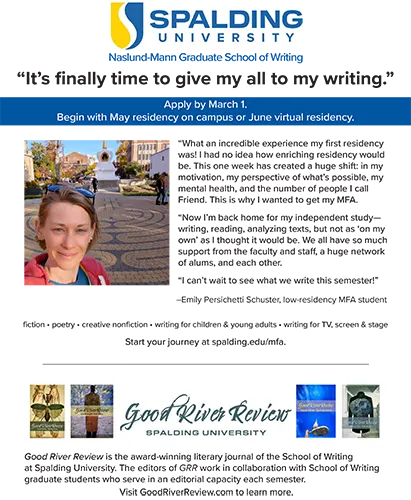Uncle Frank’s Diary
Number One
Says Schroeder, “We have a very serious issue with librarians.”
“If Schroeder and the AAP have their way, the balance will be gone, and we’ll be living in a world that no one concerned about the principles of either political freedom or publishing in a democratic society wants to see. If librarians stand by and let it happen, we’ll deserve all the bad press we get.”Librarians don’t get much bad press. They don’t need it. The stereotypes surrounding the library profession are sufficient to do the bad job on them. Why, my old alma mater, the University of Michigan School of Library Science, doesn’t even use the dreaded word in its name any more. It has become the “School of Information.””What are you studying in graduate school, Son?”
“Uh, I’m studying information, Dad.”
Today’s most intense career-building librarians are busy distancing themselves–at least in their PR efforts–from anything that smacks of such antiquated fuddy-duddyism as books, paper, glue, human interaction, reading rooms and such. They’re working hard to disavow their history, in hopes of being seen as serious information professionals who pirouette across the Internet, going where no bun-becoiffed, sensible-shoed librarian, male or female, has gone before. They are, shall we say, with it.
Me, too. In fact, I’m seldom without it. I write this at the end of a day in which I spent almost all my time with my head stuck in a computer monitor. Get it off, get it off! None of that patron-izing nonsense for this 21st century former book guy! Let’s see, did I communicate face-to-face with a single library user today? No, I did not. Success! I did e-mail like crazy, I did online searching, I answered questions–and all without once lowering myself to the dismal level that requires talking and listening to another person. I did it all on my PC.
Today’s librarians are trying hard to be seen as up & at-’em techno wizards, cutting edge, cyberspace aces, and so on. Sometimes the effort bears fruit. Sometimes the fruit proves a little sour, such as when librarians get blamed for poor innocent youth stumbling across feelthy pictures on the Internet when they’re supposed to be using the lib’s webstations to work up reports on, oh, how they spent their summer vacations.
I spent my summer vacation downloading smut at the public library.
But, OK, librarians are starting to look pretty smart and in the forefront, in spite of those old stereotypes. And they should look pretty smart, because they are, most of them. So just when librarians are looking smart, who comes along and paints ’em up as the evil of the evil, the enemies of truth, justice, and the American Way?
Why, Pat Schroeder, president of the Association of American Publishers.
In a now-notorious article in the Feb. 7 Washington Post (“Pat Schroeder’s New Chapter”), staff writer Linton Weeks let Schroeder have her way with librarians, who, as Schroeder sees it, threaten the livelihoods of publishers and authors. But especially publishers.
Says Schroeder, “We have a very serious issue with librarians.”
In Schroeder’s view of the publishing world, librarians are busy giving away the farm that poor publishers work so hard to tend. “One library buys one of their journals. They give it to other libraries. They’ll give it to others.” Pretty soon, by golly, those nefarious librarians will drive Elsevier, Bertelsmann, and other hand-to-mouth mom & pop publishers straight to the poorhouse. “Libraries have spent all this money on technology,” Schroeder contends. “They don’t have any money left for content.” So, basically, they steal it.
Schroeder, a retired 12-term U.S. Representative from Colorado, wants to be darned sure that publishers get the money they have coming to them. None of this freebie library stuff on her watch!
The main problem with Schroeder’s observations is that they are all wrong. Libraries do not pass around free copies of periodicals to one another. In the tight guidelines that determine interlibrary lending procedures, what goes from one library to another (and ultimately to a specific library user who has requested it) is a copy of a periodical article. Under the strict copyright compliance rules that American libraries follow, only a very limited number of articles from a specific periodical may be freely passed along in this manner over a specified period. Libraries exceeding the allowed quantity must pay for the privilege.
Schroeder’s contention that libraries have blown all their bucks on technology at the expense of content is equally off the mark. Yes, for sure, libraries spend ever-increasing chunks of their budgets on technologically related purposes. However, this technology itself often embodies content. In the library where I work, we have a small roster of hardcopy periodical subscriptions, barely over 1,000 titles. Through our subscription to a number of full-text online databases, our users can turn to over ten times that many periodicals in electronic form. Have we sacrificed content for technology? I don’t think so. We have simply changed the way we obtain content.
Schroeder’s terrible fear that libraries and librarians are exploiting hapless publishers is, in any case, a curious take on the relationship. If there is a genuine source of exploitation in the overall scene, it lies with publishers, particularly those who produce academic journals, who rely on free labor (in the form of academicians toiling in what continues to be a publish-or-perish environment) to produce articles for journals priced at extortionate rates–journals that academic libraries often must buy to satisfy program accreditation requirements.
Such journals–which, again, pay nothing (zero, zip, nada) to their contributors–can cost into several thousand dollars for a single annual subscription. Yes, friends, those vile librarians are shaking down powerless publishers again! Ain’t it just criminal?
Two explanations come to mind for Schroeder’s characterizations of interlibrary transactions, library technological developments, and the library-publisher relationship. The first is that she is ignorant of the rules and the realities. Schroeder has been president of the AAP since 1997, and is nobody’s fool. It defies belief to entertain the notion that she does not know what she is talking about. The other explanation is too obvious to bear discussing.
Why does this matter to the independent press?
In an open, democratic society that depends for its political health on the free public flow of information and opinion, libraries serve as a vital conduit in that flow. They make it possible, through their national networking, for citizens everywhere to obtain the materials they need to make sound decisions about the choices facing them.
Thanks to interlibrary lending, a car mechanic from a northern Wisconsin village can go to his little public library and request a copy of an article from a medical journal owned by only a few major research libraries in the Midwest. A Kentucky sharecropper can request an article from an agriculture journal that no library within hundreds of miles owns. A North Dakota homemaker can ask for a copy of an article from In These Times, or Dollars & Sense, or some other alternative periodical.
Most of the time, these folks won’t have to pay anything for the articles when they arrive. They support their local libraries with their taxes; that’s sufficient. As it should be. An informed public is the first line of defense against tyranny. The same dynamic that allows these individuals to pursue their unique informational needs at little or no personal cost is the one that helps create a climate of freedom for publishers, that helps make it possible for American publishers to flourish. The situation that we have serves everyone involved.
Pat Schroeder hates it, evidently, because too often people can read or see something without ponying up some dough for the privilege.
Speaking of dough, the Post reports that Schroeder makes a modest $370,000 a year for her AAP work. Although small, that sum is undoubtedly a welcome supplement to the income of a retired U.S. Congresswoman struggling to eke out an existence. With her first AAP check, I understand that Schroeder could afford a set of used Mel-Mac dinnerware at a nearby Sally’s. The colorful plastic pieces would no doubt brighten the drab surroundings of her congressional pensioner’s quarters.
The AAP and Schroeder want to make sure that the Wisconsin mechanic and the Kentucky sharecropper and the North Dakota homemaker pay their dues, as Schroeder has paid hers.
In spite of my opening remarks here about librarians, this one included, spending much of their time with their heads stuck in their computer monitors, one must acknowledge that change happens. There is, I believe, a healthy balance to strike between the traditional bookperson’s work and that of the cyberspaceperson. Although I have too many days when the computer seems to have a lock on my sensibilities, I try to seek that balance.
There is also a healthy balance between pay-as-you-go reading and everything-free-for-all at all times. We have had a reasonably good balance in that regard for several decades. If Schroeder and the AAP have their way, the balance will be gone, and we’ll be living in a world that no one concerned about the principles of either political freedom or publishing in a democratic society wants to see. If librarians stand by and let it happen, we’ll deserve all the bad press we get.




